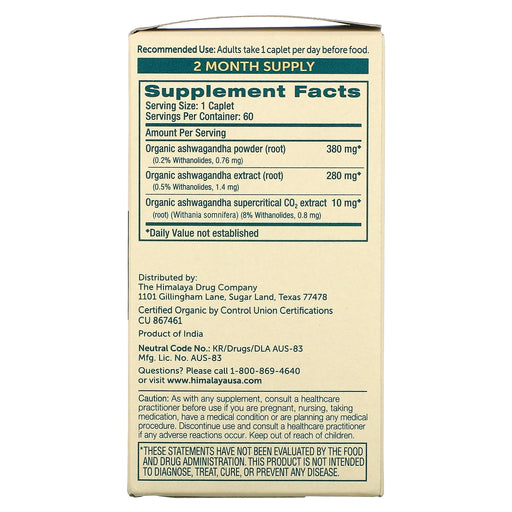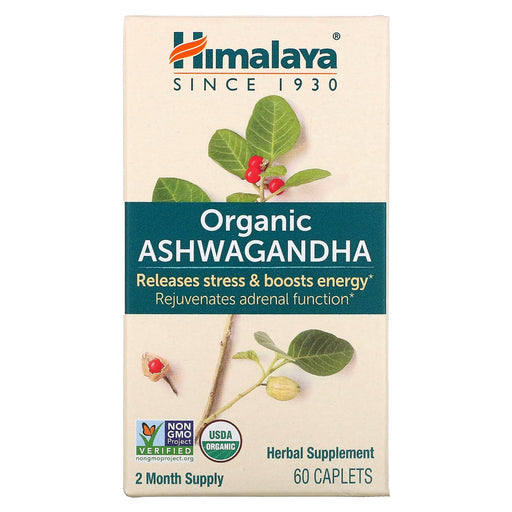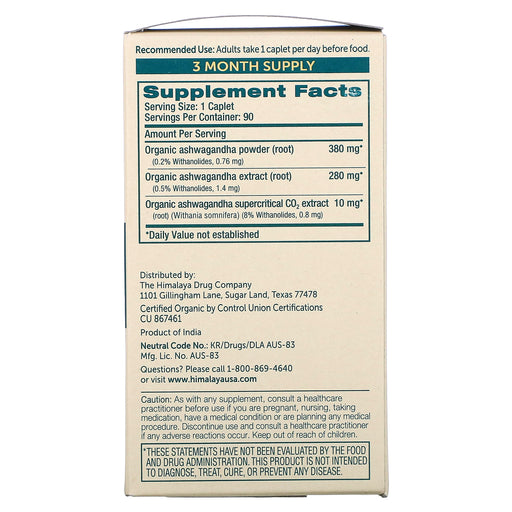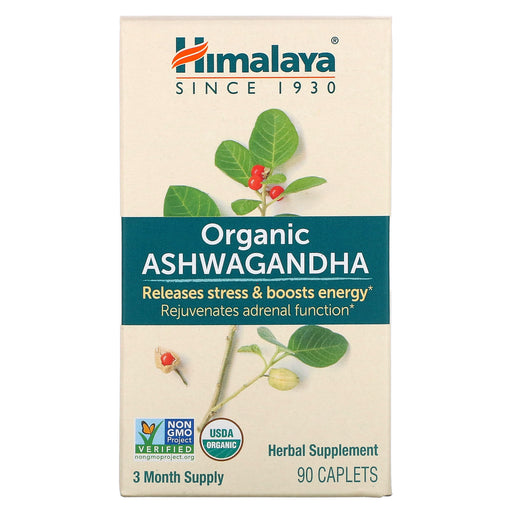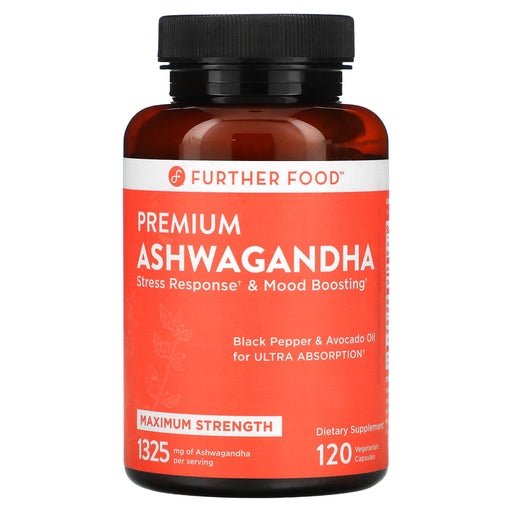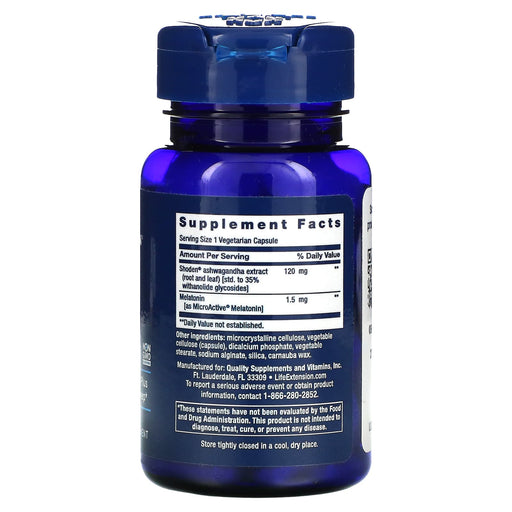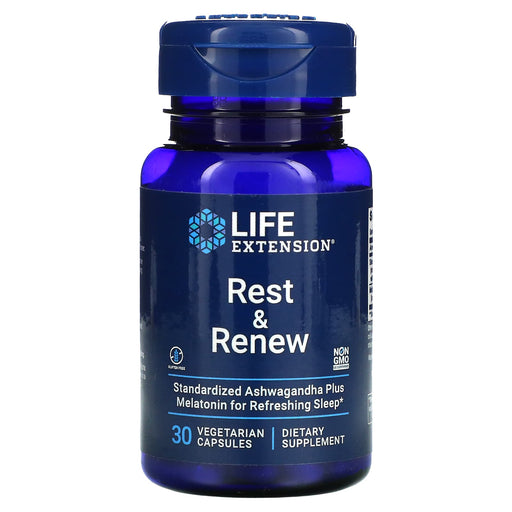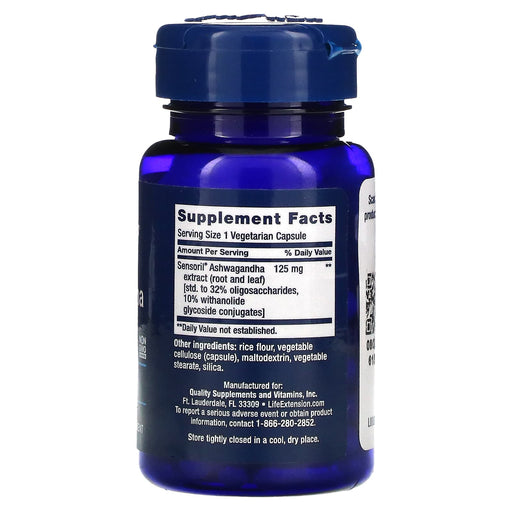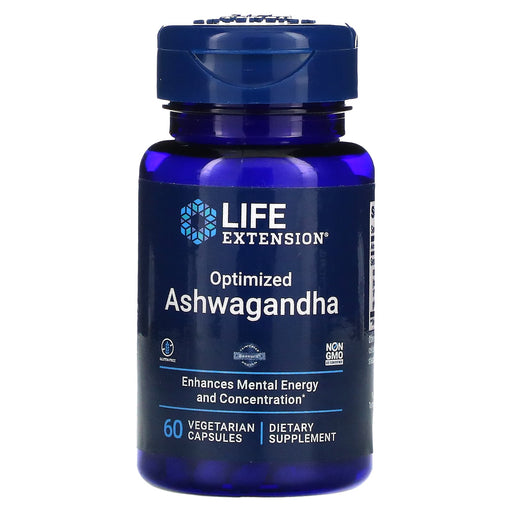
Witness the Ancient Wisdom of Ashwagandha for Stress Relief and Vitality
Ashwagandha, a revered herb with a rich history in Ayurvedic medicine, has been used for centuries to help the body adapt to stress, promote mental clarity, and support overall well-being. At Health Orchard, we offer a meticulously curated selection of the highest-quality ashwagandha supplements, harnessing the power of this time-honored botanical to help you navigate the challenges of modern life with greater ease and resilience.
The Science Behind Ashwagandha's Stress-Relieving Properties
Ashwagandha, scientifically known as Withania somnifera, is an adaptogenic herb that helps the body maintain balance and homeostasis in the face of physical, mental, and emotional stressors. The key active compounds in ashwagandha, known as withanolides, have been extensively studied for their ability to modulate the stress response and support various aspects of health and well-being.
Here are some of the ways ashwagandha works to combat stress and promote vitality:
- Regulates Cortisol Levels: Cortisol, often referred to as the "stress hormone," is released by the adrenal glands in response to stress. Chronic elevated cortisol levels can lead to a host of health issues, including anxiety, depression, sleep disturbances, and weight gain. Ashwagandha has been shown to help regulate cortisol levels, reducing the negative impact of stress on the body and mind.
- Supports Adrenal Function: The adrenal glands play a crucial role in the body's stress response, producing hormones like cortisol and adrenaline. Ashwagandha helps support healthy adrenal function, improving the body's ability to cope with stress and maintain optimal energy levels.
- Enhances Mood and Mental Well-Being: Ashwagandha has been traditionally used to promote mental clarity, reduce anxiety, and support overall emotional well-being. Modern research has confirmed these benefits, with studies showing that ashwagandha supplementation can help improve mood, reduce symptoms of anxiety and depression, and enhance cognitive function.
- Improves Sleep Quality: Stress and anxiety are common culprits behind sleep disturbances, leading to insomnia, restlessness, and daytime fatigue. Ashwagandha has been shown to promote relaxation and improve sleep quality, helping you achieve the restorative rest your body needs to function at its best.
- Boosts Energy and Vitality: Adaptogens like ashwagandha help the body maintain optimal energy levels by supporting the adrenal glands and regulating the stress response. By reducing the negative impact of stress on the body, ashwagandha can help improve overall vitality, stamina, and endurance.
The Versatile Benefits of Ashwagandha Supplementation
In addition to its stress-relieving properties, ashwagandha offers a wide range of potential health benefits, making it a versatile and valuable addition to any wellness regimen. Some of the other ways ashwagandha supports overall health and well-being include:
- Immune Support: Ashwagandha has been shown to help modulate the immune system, enhancing the body's natural defenses against pathogens and promoting overall immune function.
- Inflammation Management: Chronic inflammation is a key factor in many age-related diseases, including heart disease, diabetes, and neurodegenerative disorders. Ashwagandha possesses potent anti-inflammatory properties, helping to reduce inflammation throughout the body and support long-term health.
- Thyroid Function: Some studies suggest that ashwagandha may help support healthy thyroid function, particularly in individuals with subclinical hypothyroidism. By promoting optimal thyroid hormone levels, ashwagandha can help improve metabolism, energy, and overall well-being.
- Reproductive Health: Ashwagandha has been traditionally used to support reproductive health in both men and women. In men, ashwagandha has been shown to improve sperm quality and fertility, while in women, it may help regulate menstrual cycles and alleviate symptoms of menopause.
- Athletic Performance: Ashwagandha's energy-boosting and stress-reducing properties make it a popular supplement among athletes and fitness enthusiasts. Studies have shown that ashwagandha supplementation can help improve strength, endurance, and recovery time, supporting optimal athletic performance.
Choosing the Best Ashwagandha Supplement for Your Needs
When selecting an ashwagandha supplement, it's essential to choose a high-quality product from a trusted source. At Health Orchard, we've done the hard work for you, curating a selection of the best ashwagandha supplements on the market, each rigorously tested for purity, potency, and safety.
Here are some factors to consider when choosing an ashwagandha supplement:
- Source: Look for supplements that use high-quality, organic ashwagandha root, preferably sourced from its native regions in India. Avoid products that use inferior plant parts or low-quality, mass-produced ingredients.
- Standardization: Choose supplements that are standardized to contain a specific percentage of withanolides, the key active compounds in ashwagandha. This ensures consistent potency and efficacy across doses.
- Form: Ashwagandha supplements come in various forms, including capsules, tablets, powders, and tinctures. Consider your personal preferences and lifestyle when selecting the most convenient and easy-to-use option for your needs.
- Dosage: The optimal dosage of ashwagandha varies depending on individual needs and health status. Most studies have used doses ranging from 250–600 mg per day, standardized to contain 5–10% withanolides. Consult with a healthcare professional to determine the best dosage for your specific needs.
- Brand Reputation: Choose supplements from reputable brands with a history of producing high-quality, effective products. Look for brands that prioritize transparency, third-party testing, and adherence to Good Manufacturing Practices (GMP) to ensure the highest standards of quality and safety.
Incorporating Ashwagandha into Your Daily Wellness Routine
To maximize the benefits of ashwagandha supplementation, consider the following tips:
- Take Consistently: Adaptogens like ashwagandha work best when taken consistently over time. Incorporate your ashwagandha supplement into your daily routine, taking it at the same time each day for optimal results.
- Start Low and Go Slow: If you're new to ashwagandha, start with a lower dose and gradually increase as needed, paying attention to your body's response. This allows you to find the optimal dosage for your individual needs while minimizing the risk of side effects.
- Combine with a Healthy Lifestyle: While ashwagandha can offer powerful support for stress relief and overall well-being, it works best when combined with a balanced diet, regular exercise, and other stress-reducing practices, such as meditation or deep breathing exercises.
- Be Patient: Adaptogens like ashwagandha may take time to exert their full effects, as they work to restore balance and homeostasis in the body. Be patient and consistent with your supplementation, allowing at least 2-4 weeks of regular use before assessing your results.
Experience the Life-Changing Benefits of Ashwagandha with Health Orchard
At Health Orchard, we're dedicated to providing you with access to the highest-quality, most effective adaptogenic supplements available. Our carefully curated selection of ashwagandha supplements offers targeted support for stress relief, mental well-being, and overall vitality, empowering you to navigate life's challenges with greater ease and resilience.
Whether you're looking for supplements to boost your energy, reduce anxiety or improve sleep quality, our ashwagandha supplements provide the pure, potent nutrition you need to thrive. With our unwavering commitment to quality, transparency, and your success, you can trust Health Orchard to be your partner in optimal health and well-being.
Experience the transformative power of this ancient adaptogen for yourself, and witness the difference that premium, science-backed ashwagandha supplementation can make in your life. Shop our selection today, and take the first step towards unleashing your body's innate potential for resilience, vitality, and overall well-being.
Frequently Asked Questions about Ashwagandha
1. What does ashwagandha do to the body?
Ashwagandha is an adaptogenic herb that helps the body cope with stress and promotes overall well-being:
- Reduces stress and anxiety: Ashwagandha helps lower cortisol levels (the stress hormone) and promotes a sense of calm and relaxation
- Improves brain function and memory: It may enhance cognitive performance, attention, and memory
- Boosts immune function: Ashwagandha has immunomodulatory properties that help strengthen the immune system
- Increases energy and stamina: The herb may help reduce fatigue and improve physical performance
- Regulates blood sugar levels: Some studies suggest that ashwagandha may help lower blood sugar levels and improve insulin sensitivity
2. Is it good to take ashwagandha everyday?
Ashwagandha is generally safe for most people when taken daily in recommended doses (300-500 mg) for up to 3 months:
- Daily supplementation may help maintain the stress-reducing and adaptogenic benefits of the herb
- Long-term safety beyond 3 months has not been extensively studied, so it is best to consult a healthcare professional for guidance on extended use
- It is important to follow the recommended dosage on the product label or as directed by a healthcare provider
- Some people may benefit from cycling ashwagandha, taking it daily for a few weeks or months, followed by a break before resuming supplementation
- This cycling approach may help prevent the body from adapting to the herb's effects and maintain its efficacy over time
- However, the optimal duration of supplementation and the length of breaks may vary depending on individual needs and health status
While daily ashwagandha supplementation is generally considered safe and beneficial for most people in the short term, it is essential to:
- Purchase high-quality ashwagandha supplements from reputable sources to ensure purity and potency
- Start with the lowest effective dose and gradually increase as needed and tolerated
- Monitor your body's response and be aware of any potential side effects or interactions with existing medications or health conditions
- Consult a healthcare professional before starting daily ashwagandha supplementation, especially if you have any pre-existing health concerns or are taking medications
In summary, taking ashwagandha daily can be beneficial for many people, particularly for reducing stress, improving cognitive function, and supporting overall well-being. However, it is crucial to use the supplement responsibly, follow recommended dosages, and consult with a healthcare professional to ensure safety and effectiveness for your individual needs.
3. Who should not take ashwagandha?
While ashwagandha is generally safe for most people, some individuals should avoid or use caution when taking this herb:
- Pregnant and breastfeeding women: There is limited safety data on the use of ashwagandha during pregnancy and lactation, so it is best to avoid it unless under the guidance of a healthcare professional
- People with autoimmune disorders: Ashwagandha may stimulate the immune system, which could potentially exacerbate autoimmune conditions such as rheumatoid arthritis, lupus, or multiple sclerosis
- Individuals with thyroid disorders: Ashwagandha may increase thyroid hormone levels, so people with hyperthyroidism or those taking thyroid medications should consult their healthcare provider before use
- People taking certain medications: Ashwagandha may interact with some medications, such as immunosuppressants, sedatives, or thyroid hormones, so it is essential to discuss potential interactions with a healthcare professional
4. Can ashwagandha have side effects?
Ashwagandha is generally well-tolerated, but some people may experience side effects:
- Digestive issues: Nausea, diarrhea, or stomach upset may occur, particularly when starting the supplement or taking high doses
- Headache: Some individuals may experience headaches when taking ashwagandha
- Sleepiness: Ashwagandha's calming effects may cause drowsiness in some people, so it is best to take it in the evening or before bedtime
- Allergic reactions: In rare cases, some people may have an allergic reaction to ashwagandha, which may cause symptoms such as itching, rash, or difficulty breathing
If any side effects persist or worsen, discontinue use and consult a healthcare professional.
5. Can ashwagandha cause weight gain?
Ashwagandha is not typically associated with weight gain:
- Some studies suggest that ashwagandha may help improve body composition by reducing body fat percentage and increasing lean muscle mass
- These effects are likely due to the herb's ability to reduce stress, regulate cortisol levels, and support healthy testosterone production
- However, individual results may vary, and weight changes are more likely to be influenced by overall diet and lifestyle factors
- If you experience unexplained weight gain while taking ashwagandha, consult a healthcare professional to rule out any underlying health issues
6. Why do I feel bad after taking ashwagandha?
Some people may feel bad after taking ashwagandha due to individual sensitivity or side effects:
- Digestive discomfort: Nausea, bloating, or diarrhea may occur, particularly when starting the supplement or taking high doses
- Headache: Some individuals may experience headaches as a side effect of ashwagandha
- Fatigue: While ashwagandha is generally known for its energy-boosting properties, some people may feel tired or drowsy, especially if taking it during the day
- Allergic reaction: In rare cases, an allergic reaction to ashwagandha may cause symptoms such as itching, rash, or difficulty breathing
If you feel bad after taking ashwagandha, discontinue use and consult a healthcare professional to determine if the supplement is appropriate for you or if an underlying health issue needs to be addressed.
7. Why did ashwagandha make my anxiety worse?
While ashwagandha is known for its anxiety-reducing properties, it may worsen anxiety in some individuals:
- Individual sensitivity: Some people may be more sensitive to the effects of ashwagandha, and the herb's stimulating properties may exacerbate anxiety symptoms
- Incorrect dosage: Taking too high a dose of ashwagandha may lead to increased anxiety or agitation
- Interaction with medications: Ashwagandha may interact with certain medications, such as antidepressants or anxiolytics, potentially altering their effectiveness or causing adverse effects
- Underlying health conditions: In some cases, worsening anxiety may be a sign of an underlying health issue that requires medical attention
If ashwagandha makes your anxiety worse, stop taking the supplement and consult a healthcare professional to discuss alternative treatment options or to address any underlying health concerns.
8. What are the pros and cons of taking ashwagandha?
Pros:
- Reduces stress and anxiety: Ashwagandha helps lower cortisol levels and promotes relaxation
- Improves brain function and memory: It may enhance cognitive performance, attention, and memory
- Boosts immune function: The herb has immunomodulatory properties that help strengthen the immune system
- Increases energy and stamina: Ashwagandha may help reduce fatigue and improve physical performance
Cons:
- Potential side effects: Some people may experience digestive issues, headache, or sleepiness when taking ashwagandha
- Interactions with medications: Ashwagandha may interact with certain medications, such as immunosuppressants, sedatives, or thyroid hormones
- Limited long-term safety data: While ashwagandha is generally safe for short-term use, long-term safety beyond 3 months has not been extensively studied
- Not suitable for everyone: Pregnant women, people with autoimmune disorders, and individuals with thyroid issues should avoid or use caution when taking ashwagandha
9. Does ashwagandha make you emotionally numb?
Ashwagandha is not known to cause emotional numbness:
- The herb is primarily used to reduce stress, anxiety, and promote a sense of calm and relaxation
- Emotional numbness is not a commonly reported side effect of ashwagandha
- In fact, some studies suggest that ashwagandha may help improve mood and reduce symptoms of depression
- However, if you experience emotional numbness or other concerning symptoms while taking ashwagandha, discontinue use and consult a healthcare professional to rule out any underlying mental health issues or potential interactions with other medications
In conclusion, ashwagandha is a popular adaptogenic herb that offers various potential health benefits, such as reducing stress and anxiety, improving brain function, and boosting immune health. However, it is essential to be aware of the potential side effects, interactions, and contraindications before starting ashwagandha supplementation. Always consult a healthcare professional to determine if ashwagandha is appropriate for your individual needs and health status.


